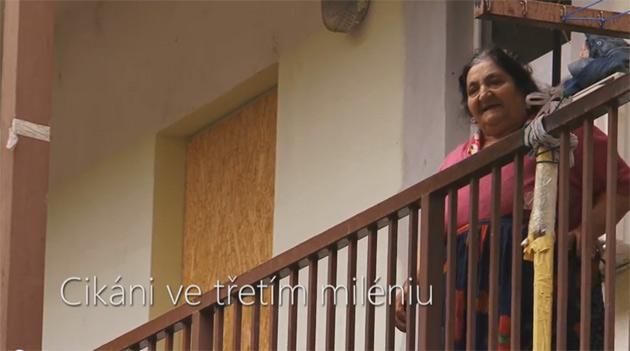Czech Television humiliates Romani people on their International Day

On 7 April, Czech Television broadcast the feature film "El Paso" and a documentary called "Roma in the Third Millenium" ("Romové ve 3. miléniu"). First, the embarrassing dramaturgy: "El Paso" was on the "ČT art" channel and ended at 22:10, while the documentary was on ČT 2 and began at 21:25.
It was simply not possible to watch both films in their entirety in real time. Certainly it is customary for programs to compete, and more people than just the fans of "Romani films" have to grapple with this problem, but the programming for International Romani Day only takes place once a year, after all… anyway, on to the more important matter.
Clichés and stereotypes as an International Romani Day gift
On its website, Czech Television describes the documentary "Roma in the Third Millenium" as follows: "The documentary film ‘Roma in the Third Millenium’ was created with the awareness of the growing tensions between impoverished members of the so-called majority and impoverished members of all minorities, i.e., the Romani minority as well. As a result, the film subtly communicates on several levels that reflect the most common problems – prostitution, crime, work ethic and life habits – in images from the lives of young Romani families, those who do not conform to stereotypes, those who work as crime prevention assistants and activists."
The program notes read as follows: "A somewhat non-traditional view of the Romani community in the Czech Republic. This film shows the situations of Romani people who are endeavoring to integrate into the majority society."
This summary of introductory information is remarkable: Romani people who want to integrate into the majority society are said to be grappling with prostitution and crime as their "most common" problems. That is exactly the story the documentary tells.
Prostitute, thief, thug
The documentary has three main protagonists. The first is a young man who used to be a thief and a thug – school for him was just a "cockroach nest", he would even be capable of killing.
However, when he found himself with the blood of one of his enemies on his hands, he woke up and set his life on the right path. He began working as a crime prevention assistant, then passed a requalification course and now works in a paper mill; he has a wife and child.
The second protagonist is a former thief who, together with his wife, used to rob shops, steal scrap iron, etc. Because of his children, however, he has set his life on the right path.
He found a job and doesn’t steal anymore. One scene shows him sitting with his children in their new apartment reciting something like a prayer: "This apartment may be small, but we like it, we won’t destroy it, we won’t steal."
The third protagonist is a young girl, a former prostitute, who says she "slept with clients" in Switzerland and "provided services". She got pregnant there, not with a client, but with a man she met in a discotheque.
She thought about an abortion, but could not afford to pay CZK 6 000 for one. So she gave birth to the child and kept her.
She says her girl will definitely not be a prostitute, that she will teach her to dance and sing. This is her answer to a leading question that is posed to her by the director about why it is that so many "Gypsy" girls are prostitutes.
Around these three main characters other Romani people flash past the viewer here and there, but they are actually just minor figures who cannot possibly compete with the main ones: Two brothers who are both students and who are both obviously exceptionally gifted, a successful graduate, an intelligent, strong woman with three children, a responsible activist from the town of Krupka. I don’t know what criteria the director used for choosing whom to give the most attention, but the explanation is offered that these other figures actually don’t have to grapple with those "most common problems" of Romani people, i.e., with crime and prostitution.
Apology to Czechs in the finale
The film culminates in an extraordinary cliché: The former thug who has found the right path and faith apologizes to all the Czechs whom he has harmed. He asks them for forgiveness and blesses them.
Yes, this is the message of the film: If Romani people apologize for everything they are doing wrong, if they stop stealing and prostituting themselves (as most of them do) and if they follow the role models presented by successful representatives of the majority society, such as the director of the Děčín Municipal Police, then they have a chance. It’s a fragile chance, and we’ll see whether they fail, whether their customs, unreliability and different mentality won’t just swallow them up again, but it is a chance.
From a dramaturgical point of view, there was an interesting paradox here: The exact moment that viewers might want to tune in to catch the beginning of this documentary, was the moment when the drama of "El Paso" was reaching its own climax on another channel – a scene in which insensitive, stupid "white" bureaucrats are tyrannizing the widowed Romani mother of seven children. For those who switched to Channel 2, a very different drama was being played out in which some Romani criminals and prostitutes might succeed in integrating into society if only they would take their "white role models" seriously enough.
Naturally, I have nothing against showing various points of view and different opinions. Nevertheless, I believe the documentary film "Roma in the Third Millenium" is superficial, manipulative and biased, and that Czech Television has marked International Romani Day in a genuinely embarrassing way.